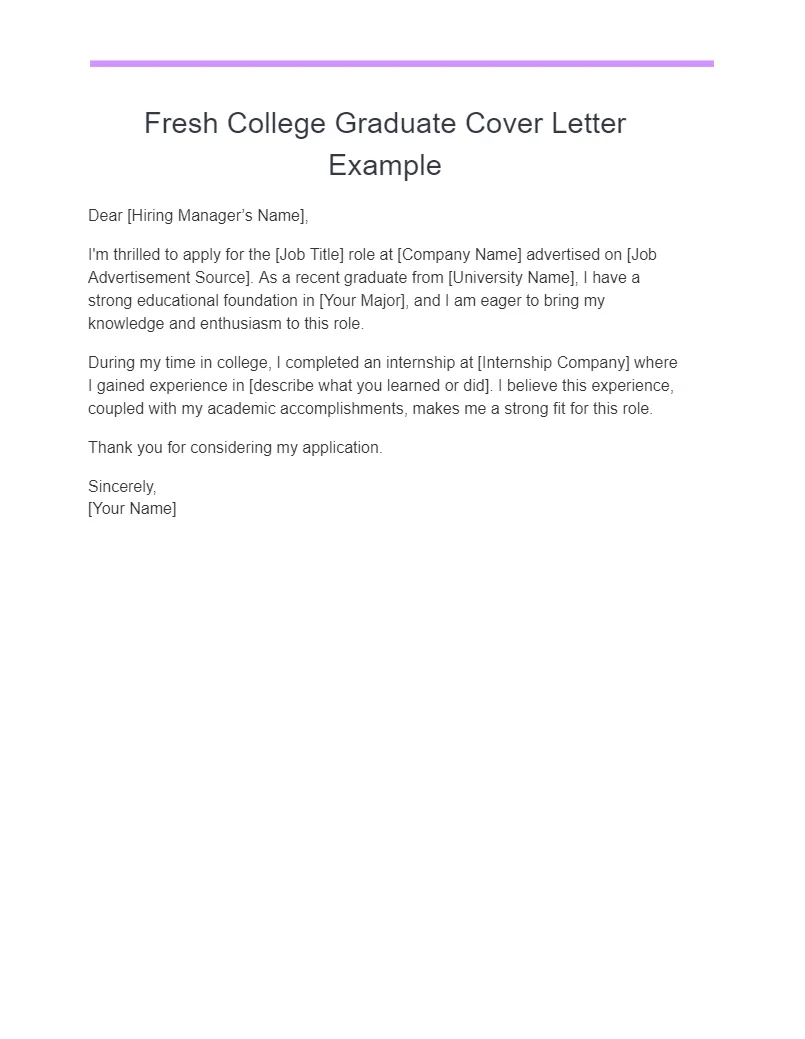Cover Letter for Fresh Grad Engineer The Importance
As a fresh graduate engineer, your cover letter is a crucial tool for making a strong first impression on potential employers. While your resume provides a summary of your qualifications, the cover letter allows you to elaborate on your skills, experiences, and aspirations in a personalized way. It’s your chance to showcase your personality, enthusiasm, and genuine interest in the specific role and company. A well-crafted cover letter can significantly increase your chances of securing an interview, while a poorly written one can lead to your application being overlooked. Therefore, investing time and effort in creating a compelling cover letter is essential for launching your engineering career.
Highlighting Your Engineering Education and Skills
Your education is the foundation of your engineering expertise. In your cover letter, clearly state your degree, major, and the university you attended. Highlight any academic achievements, such as Dean’s List recognition, scholarships, or relevant coursework. Focus on the specific skills you’ve gained through your education. These skills can be technical (e.g., proficiency in CAD software, experience with specific programming languages, knowledge of engineering principles) or transferable (e.g., problem-solving, critical thinking, project management). Use the cover letter to show how your education has equipped you to succeed in the role.
Showcasing Relevant Coursework and Projects
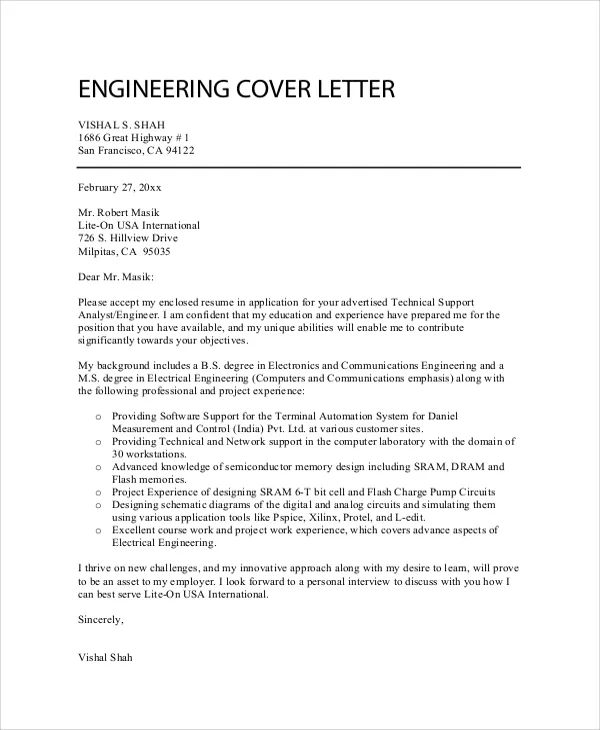
Coursework and projects provide concrete examples of your skills and abilities. Mention specific courses that align with the job requirements, demonstrating your foundational knowledge. Describe any significant projects you’ve worked on, including your role, the project’s objectives, and the results you achieved. Quantify your accomplishments whenever possible (e.g., “Improved efficiency by 15%,” “Reduced material costs by $5,000”). By providing specific details and outcomes, you showcase your ability to apply your knowledge and make a tangible impact.
Emphasizing Soft Skills in Your Cover Letter
While technical skills are essential, soft skills are equally important for success in engineering. Employers seek candidates who can effectively communicate, collaborate, and adapt to challenges. Highlight your soft skills by providing examples of how you’ve demonstrated them in your academic or extracurricular experiences. Focus on skills that are relevant to the job description and company culture. For instance, if the job requires teamwork, share an experience where you successfully collaborated with others to achieve a common goal. Remember, showcasing your soft skills makes you a well-rounded candidate.
Communication and Teamwork
Engineers often work in teams, requiring strong communication and collaboration abilities. In your cover letter, emphasize your ability to clearly convey technical information, actively listen to others, and work effectively in a team environment. Describe instances where you’ve successfully communicated complex ideas, resolved conflicts, or contributed to a team’s success. Showcasing these abilities will demonstrate your ability to collaborate seamlessly within a professional setting. Provide concrete examples of how you have effectively communicated your ideas to team members.
Problem-Solving and Analytical Abilities
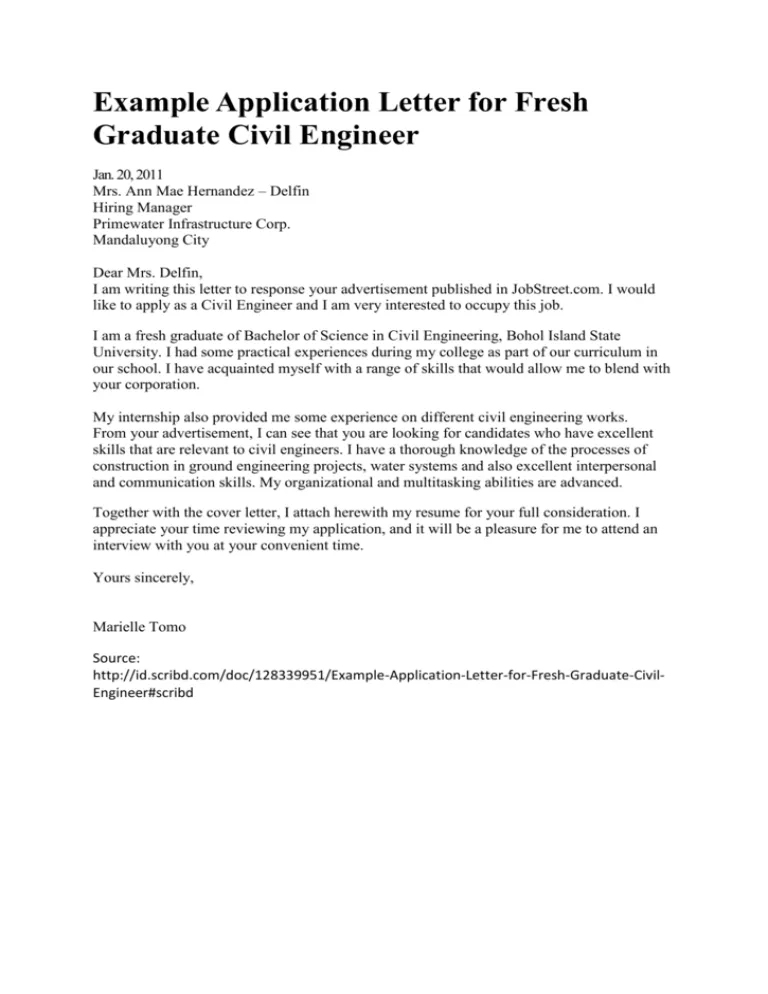
Engineers are problem solvers. Demonstrate your analytical skills by highlighting your ability to identify problems, analyze data, and develop effective solutions. Provide examples of how you’ve used these skills in projects or academic assignments. Showcase your ability to think critically, approach challenges logically, and make informed decisions. Mention any problem-solving methodologies or tools you’re familiar with. Showcasing your analytical skills will make you a standout candidate.
Tailoring Your Cover Letter to Each Job
Avoid sending the same generic cover letter for every job application. Tailoring your cover letter to each specific role and company is essential. This demonstrates your genuine interest in the opportunity and shows that you’ve taken the time to understand the requirements. Carefully review the job description and identify the key skills and experiences the employer is seeking. Then, adjust your cover letter to highlight how your qualifications align with those requirements. This personalized approach will make your application more compelling and increase your chances of getting noticed.
Researching the Company and the Role
Before writing your cover letter, research the company and the specific role you’re applying for. Visit the company’s website to learn about its mission, values, and recent projects. Understand the role’s responsibilities and the skills required to succeed. Use this information to tailor your cover letter. For example, if the company emphasizes innovation, highlight your experience with innovative projects or your creative problem-solving skills. If the job description mentions specific software or technologies, ensure that you mention your relevant experience. This research is essential to write a successful cover letter.
Matching Skills and Experiences to Requirements
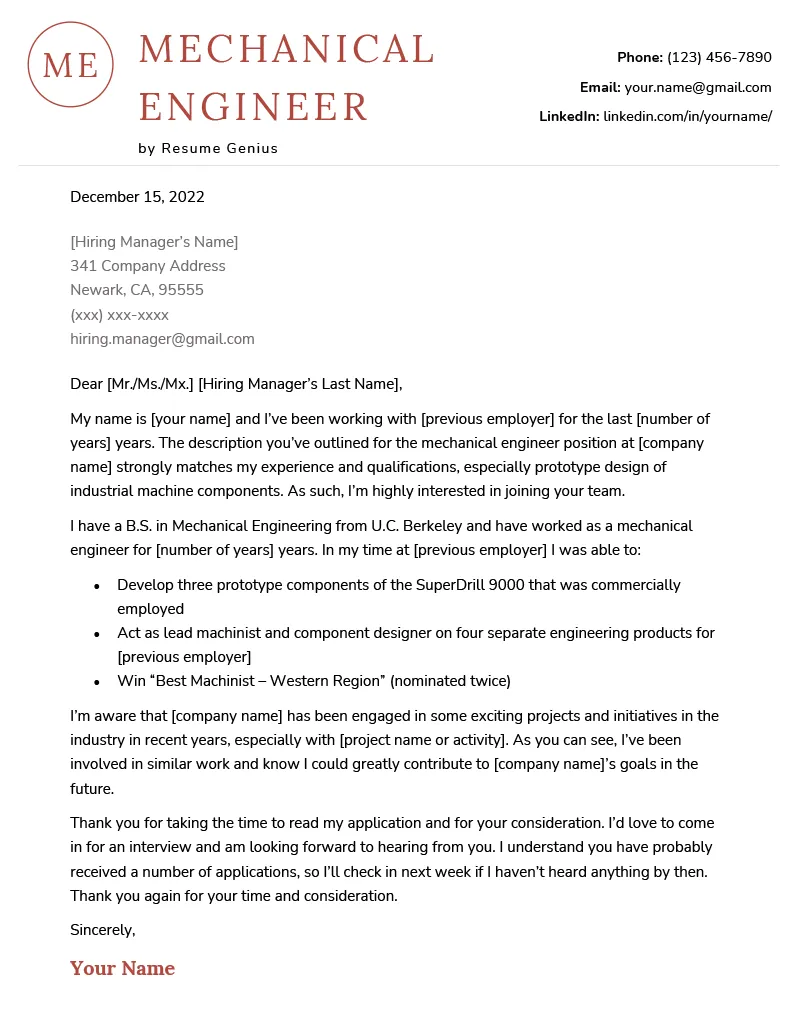
Carefully compare your skills and experiences with the requirements listed in the job description. Identify the skills that the employer values most and ensure that you highlight them in your cover letter. Provide specific examples of how you’ve demonstrated those skills in the past, whether through coursework, projects, internships, or extracurricular activities. Quantify your accomplishments whenever possible to demonstrate the impact you’ve made. By directly addressing the employer’s needs, you showcase your understanding of the role and your ability to contribute to the company’s success.
Using Strong Action Verbs and Keywords
Use strong action verbs to describe your accomplishments and responsibilities. Verbs like “developed,” “implemented,” “designed,” “managed,” and “solved” add impact and clarity to your writing. Keywords are important as employers often use applicant tracking systems (ATS) to scan cover letters and resumes for specific terms. Review the job description and incorporate relevant keywords throughout your cover letter. Use these keywords naturally; avoid stuffing them into your writing, which can make your cover letter sound unnatural. A well-crafted cover letter is a key to getting noticed.
Proofreading and Formatting Your Cover Letter
Proofreading your cover letter is essential to catch any grammatical errors, spelling mistakes, or typos. These errors can damage your credibility and give the impression that you are not detail-oriented. Before submitting your cover letter, carefully review it multiple times. Read it aloud to catch any awkward phrasing or unclear sentences. Consider asking a friend or career advisor to review your cover letter as well. Proper formatting is equally important for a professional appearance. Choose a clear, easy-to-read font, and use consistent formatting throughout your document. Ensure proper spacing and margins to make your cover letter visually appealing.
Reviewing for Clarity and Conciseness
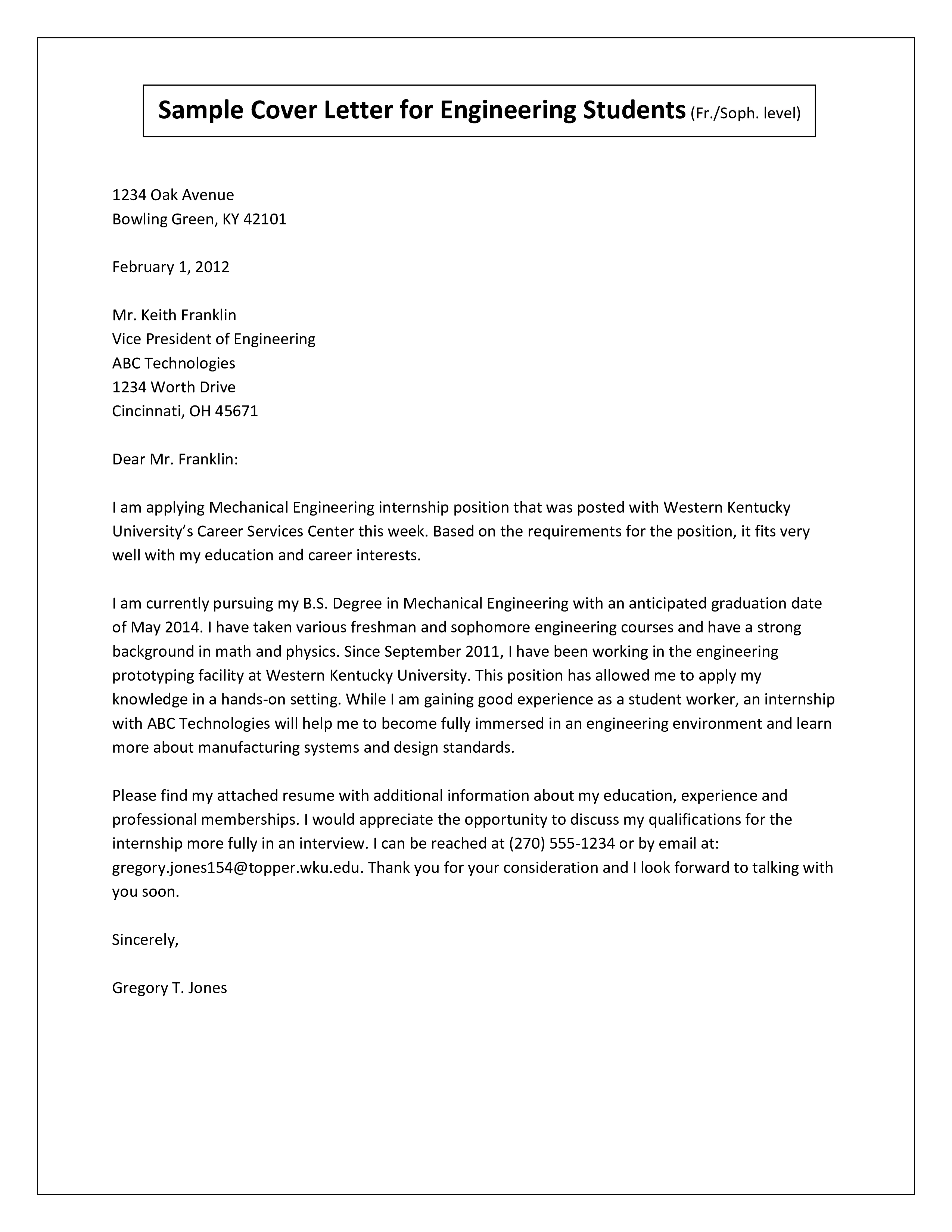
Keep your cover letter concise and focused. Aim for one page. Avoid lengthy paragraphs and irrelevant information. Each sentence should serve a purpose and contribute to your overall message. Use clear and concise language to convey your ideas effectively. Make sure that your cover letter is easy to read and understand. Avoid jargon or technical terms that the reader may not be familiar with. Prioritize clarity in your writing to make your cover letter stand out.
Formatting Tips for Professionalism
Adopt a professional format. Include your contact information at the top. Use a standard font like Times New Roman or Arial in a 12-point size. Maintain consistent margins (usually 1 inch on all sides) and spacing (single-spaced within paragraphs and double-spaced between paragraphs). Use a clear and concise layout. Break up large blocks of text into smaller paragraphs to improve readability. Always use a professional tone and address the hiring manager by name, if possible. A well-formatted cover letter demonstrates attention to detail.
In conclusion, crafting a compelling cover letter is a critical step in your job search. By focusing on your skills, tailoring your letter to each job, and presenting yourself professionally, you can significantly increase your chances of getting noticed by employers. Remember to highlight your education, projects, and soft skills. Always proofread and format your cover letter carefully. Good luck with your job search!
